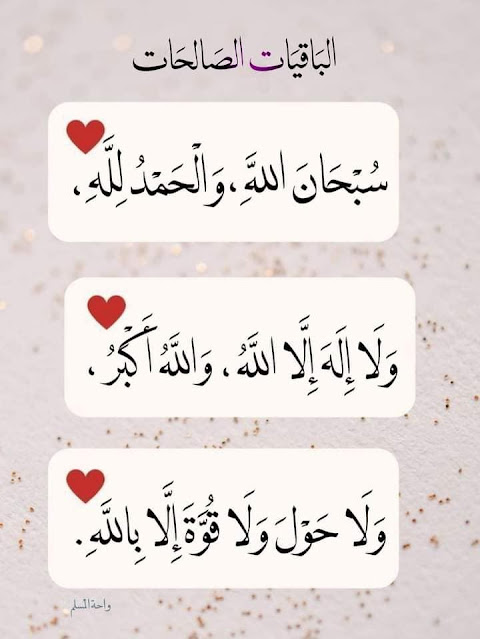1. Do you know that Allah (swt) Al-Baqi (The Ever Enduring) wants your deeds to live beyond you?
Even though Allah (swt) has created a temporary and transient world, He wants our good deeds to live on. Such deeds are sincere, pure of motive, and righteous acts performed only for Allah’s (swt) sake with zero adulteration. Salihat means ‘good deeds’ and Al-Baqiyat means ‘enduring that will remain forever’.
2. Are wealth and children counted in Al-Baqiyat-us-Salihat?
Generally, we invest only in our kids and property and worry about them endlessly. Every Friday, while reciting Surah Al-Kahf, every Muslim is reminded that wealth and children are of no lasting value, though we will be held responsible for their best care and that too for Allah’s (swt) sake. “Wealth and children are (but) adornment of the worldly life. But the enduring good deeds are better to your Lord for reward and better for (one’s) hope.” (Al Kahf, 18:46)
3. What is counted as Al-Baqiyat-us-Salihat?
The scope of Al-Baqiyat-us-Salihat is huge. It mainly has to do with our intent. How pure is it? When we perform a good deed, do we desire a gain or a favour in return? Do we want a high mention and a story with an image going viral everywhere? If it is only for the sake of Allah (swt), why do we need a badge of honour in the world? The deed has already been penned by the angels, who serve as scribes. Why do I require a thank you, a tribute or recognition, if all the honour belongs to Allah (swt)? If our deeds need to be publicized, He will make them known to all or those who matter. Otherwise, any noble act committed in secrecy for the pleasure of Allah (swt) and as per His commands will become Al-Baqiyat-us-Salihat.
4. Have you corrected your perception?
“Whatever you have will end, but what Allah (swt) has is lasting.” (Al Nahl, 16:96) We often shop for stuff we stow away for future use. We also save and invest for our future ambitions. Often, we neglect virtuous deeds we could have performed in the present only to protect an uncertain future.
Allah (swt) promises us a guaranteed gain in the Afterlife. Al-Baqiyat-us-Salihat done in the world will return to us in the Aakhirah. They also motivate us to do more. If you ever find yourself hungry for good deeds and feel elated doing them one after the other to seek Allah’s (swt) majestic face, you are on the path of Ikhlas.
5. Are you performing the recommended Al-Baqiyat-us-Salihat?
Tafseer Ibn Katheer mentions some: Sabr, Salah, Dhikr, repentance, Sadaqah, repaying someone’s loans or debts, performing jihad, and maintaining ties of kinship. These are excellent forms of good deeds in Islam but there are plenty of others.
6. Are you praying for their acceptance?
We must have a reality check. Our good deeds alone will not earn us a reward unless accepted by Allah (swt) with His divine mercy. Our intention can waver, a deed can be imperfect, and efforts can be inconsistent – we are weak and vulnerable mortal beings, whose performance differs every day.
Hence, we must make the following Dua for ourselves:
رَبَّنَا تَقَبَّلْ مِنَّا ۖ إِنَّكَ أَنتَ السَّمِيعُ الْعَلِيمُ
“Our Lord accept our good deeds from us, You are indeed All-Hearing, All-Knowing.” (Al-Baqarah 2:127)
“Indeed, those who believe and do righteous deeds – for them is a reward uninterrupted.” (Fussilat, 41:8)
Dan Allah akan menambahi hidayah petunjuk bagi orang-orang yang menurut jalan petunjuk; dan amal-amal yang baik yang tetap kekal faedah-faedahnya itu, lebih baik balasan pahalanya di sisi Tuhanmu dan lebih baik kesudahannya.
(Maryam 19:76)https://www.hibamagazine.com/al-baqiyat-us-salihat-deeds-of-lasting-permanence/








No comments:
Post a Comment